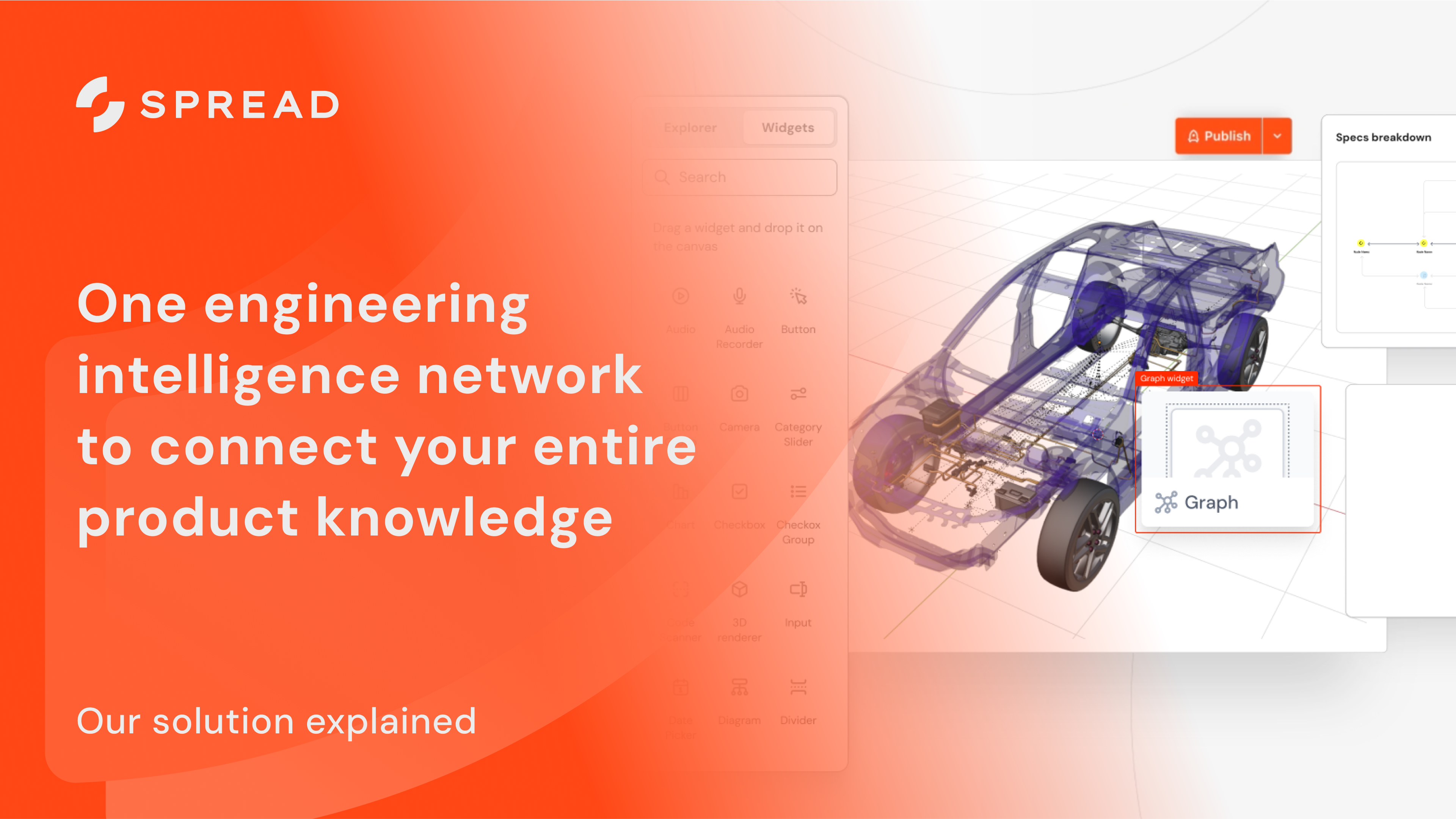How 3D diagnostics unveil efficiency in data-driven troubleshooting[DE]
Overcome automotive software complexity with SPREAD’s 3D Diagnostics—visualize ECU connections, pinpoint failures, and automate compliance. Watch now!
As regulatory requirements become increasingly stringent, clean data management and system integration are now critical priorities for automotive manufacturers. One key regulation, UNR 156 on software update management, underscores the importance of maintaining traceability and ensuring that certified values remain unaffected by each update. However, achieving this requires overcoming fragmented engineering data, tool breaks, and legacy PLM challenges—issues that hinder R&D efficiency for automotive innovation.
With the complex integration of hardware and software, managing version control and ensuring regulatory compliance can be overwhelming. Traditional change management software struggles to keep pace with the increasing speed of software updates, often resulting in data silos that slow down decision-making. By leveraging AI-driven automation, manufacturers can enhance data collection, integration, and validation, reducing manual work and ensuring that software changes remain transparent and compliant.
Join Markus Kühl (Managing Director & Founder, Getetec GmbH and PREEvision), Jochen Weiler (SUMS Manager, Mercedes-Benz Vans), and Daniel Metzinger (Senior Solution Manager, SPREAD & former R&D Engineer, Mercedes-Benz) as they discuss:
- The role of AI in overcoming fragmented engineering data and tool breaks
- How clean version management ensures compliance with UNR 156
- Strategies for overcoming legacy PLM challenges in modern engineering environments
- Best practices for streamlining change management software to improve R&D efficiency
Watch now – German audio with English subtitles.
![How 3D diagnostics unveil efficiency in data-driven troubleshooting[DE]](https://www.spread.ai/hubfs/Content/custom-video-thumbnails/Thumbnail%20Spread%20Diagnosetagung%202024_Full.png)
How 3D diagnostics unveil efficiency in data-driven troubleshooting[DE]
Overcome automotive software complexity with SPREAD’s 3D Diagnostics—visualize ECU connections, pinpoint failures, and automate compliance. Watch now!
Read More
AI-powered Systems Engineering: our solution explained
Enhance workflows and cut costs: Discover SPREAD’s AI-native platform that unifies engineering data and automates processes. Watch now!
Read More
Agentic Engineering Intelligence: Transparency & Efficiency through AI
Insights into practical application of SPREAD AI, which is already driving innovation in the automotive, aerospace, and mechanical engineering industries.
Read More